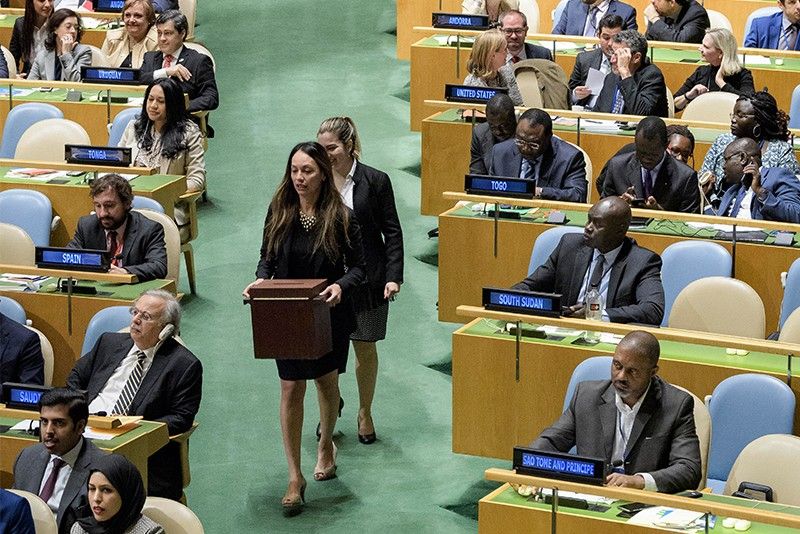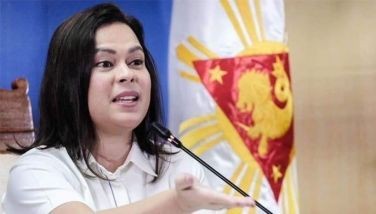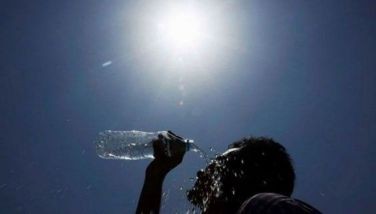Inclusion in UN rights council no endorsement of Philippine policies, Karapatan says

MANILA, Philippines — The Philippines' election to the UN Human Rights Council is not an endorsement of the government's campaign on illegal drugs or its human rights records, Karapatan said Sunday.
The human rights group pointed out in a statement Sunday that there were only 18 candidates for the 18 seats on the council, meaning the country's re-election to the council "is due to the removal of any competition, instead of the Palace's dramatized version of 'acknowledgement by the international community' of the Duterte government’s infamous campaigns."
According to a UN explainer on the Human Rights Council, the UN General Assembly allows "extra blank slates" to enable a competitive voting process. "However, if – as was the case this year with 18 candidacies for 18 available seats – no extra countries apply, then no competition occurs, and whichever Member State applies, is likely to get elected."
RELATED: International rights groups: 'Philippines unfit for seat on UN Human Rights Council'
Presidential spokesperson Salvador Panelo claimed the re-election meant that "the community of nations has viewed the drug menace as a global problem requiring its utmost attention in forcefully dealing with it and forging a united front against the purveyors of its proliferation across the frontiers of the world." He added the Philippines "is showing the way how to slay the dragon of destruction."
"Our successful bid to keep our seat in the Council is proof that many in the international community remain convinced the Philippines respects and protects human rights and have seen through the efforts of some to politicize and weaponize the issue," Alan Peter Cayetano, who is stepping down as Foreign Affairs secretary to run for congressman of Taguig, also said.
Karapatan: Gov't spin does not erase thousands killed
But Karapatan secretary-general Cristina Palabay said Sunday that staying on the council "does not absolve the Duterte government of its rights violations against the Filipino people."
"It does not erase the thousands killed in its murderous drug war or its spectrum of violations and scores of victims in indigenous and peasant communities," Palabay, who participated in an "International People's Tribunal" in Belgium in September, said. The IPT proceedings, although not legally binding, would be forwarded to the International Court, organizers said then.
"We thus call on the UNHRC to pursue its independent investigation to look into human rights violations in the Philippine, amid numerous reports and complaints that have been submitted to the said body," she also said.
She said government spin on the re-election "reflects the Duterte administration's stubborn refusal to acknowledge its accountability on the numerous killings as a result of its war on drugs and its attacks on human rights defenders and civilians as a consequence of counterinsurgency program Oplan Kapayapaan and martial law in Mindanao."
The Philippine government has maintained that it upholds and protects human rights but has also claimed the the issue of human rights has been "weaponized" by members of the political opposition to discredit the government.
According to a government "RealNumbersPH" release in September, there have been 4,854 "drug personalities" killed in anti-drug operations since July 1, 2016. Critics and human rights groups have higher estimates.
- Latest
- Trending




























